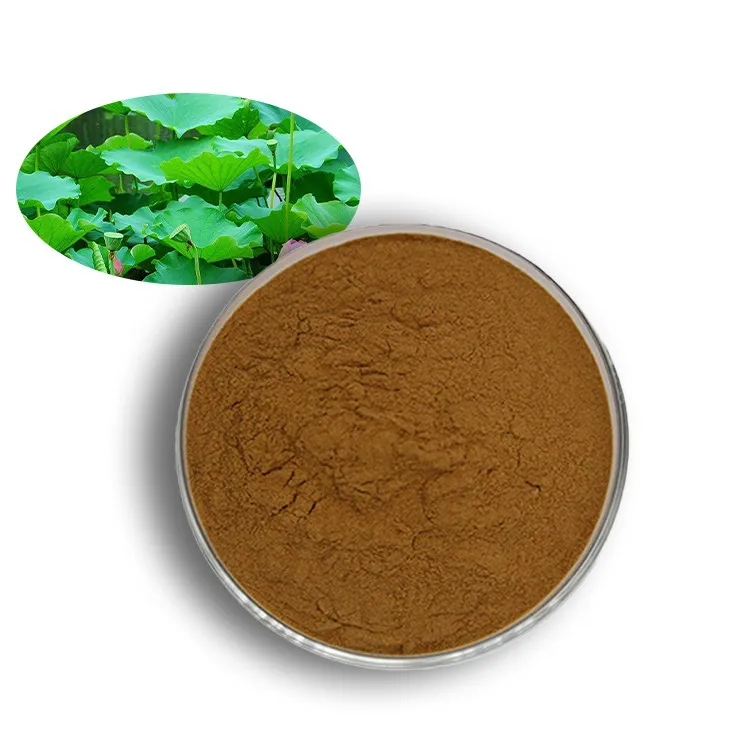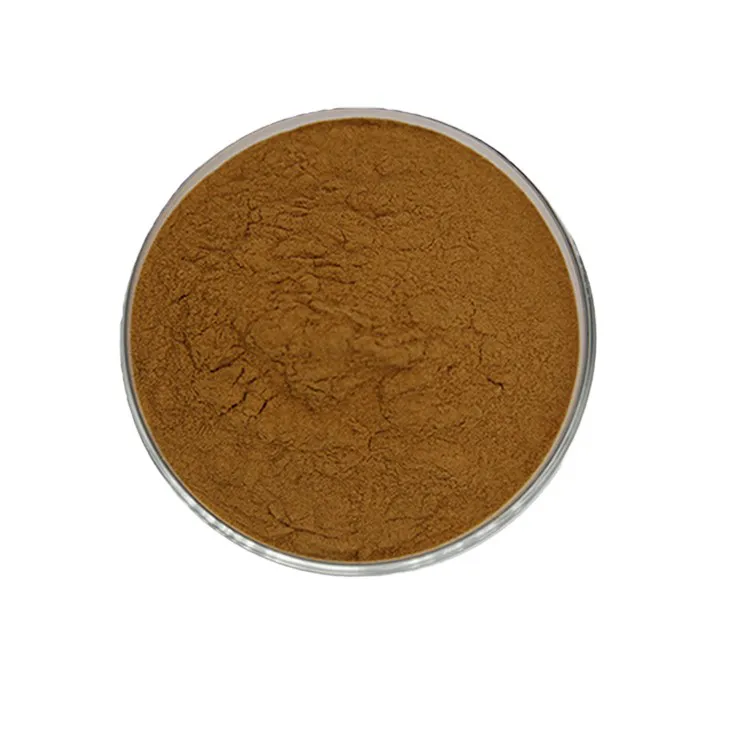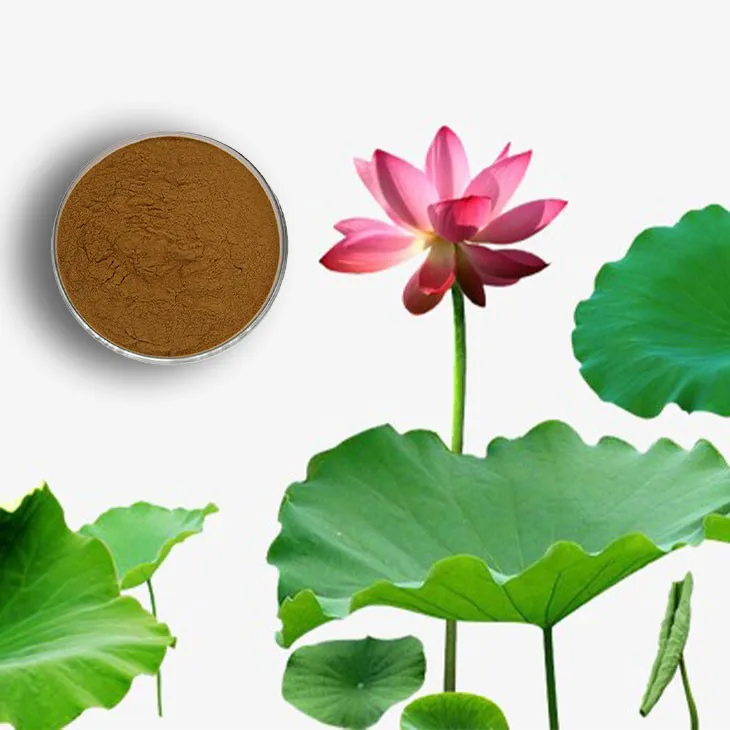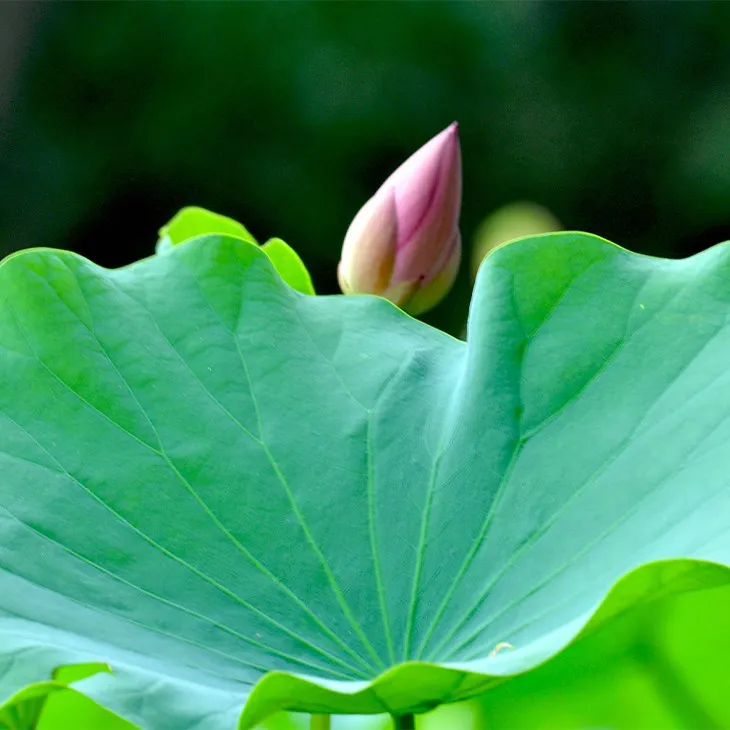- 0086-571-85302990
- sales@greenskybio.com
Lotus Leaf Extract: Benefits, Uses and Possible Side Effects
2024-11-13

1. Introduction
The lotus plant has been revered in many cultures for centuries, not only for its beauty but also for its potential medicinal properties. Lotus leaf extract is a natural substance that has been gaining increasing attention in recent years. It is derived from the leaves of the lotus plant (Nelumbo nucifera), which is native to Asia but can also be found in other parts of the world. This extract is rich in various bioactive compounds that are believed to contribute to its numerous health - promoting effects.

2. Health - Promoting Properties
2.1 Antioxidant Activity
Lotus leaf extract contains a significant amount of antioxidants. Antioxidants play a crucial role in protecting the body from oxidative stress. Oxidative stress occurs when there is an imbalance between the production of free radicals and the body's ability to neutralize them. Free radicals are highly reactive molecules that can damage cells, proteins, and DNA. The antioxidants in Lotus leaf extract, such as flavonoids and polyphenols, can scavenge these free radicals, reducing the risk of chronic diseases such as cancer, heart disease, and neurodegenerative disorders.
2.2 Anti - Inflammatory Effects
Chronic inflammation is associated with many health problems, including autoimmune diseases, arthritis, and inflammatory bowel disease. Lotus leaf extract has been shown to possess anti - inflammatory properties. It can inhibit the production of inflammatory mediators such as cytokines and prostaglandins. By reducing inflammation, it may help to alleviate symptoms associated with inflammatory conditions and promote overall health.
2.3 Blood Sugar Regulation
For those with diabetes or at risk of developing diabetes, lotus leaf extract may offer some benefits. Studies have suggested that it can help to regulate blood sugar levels. It may improve insulin sensitivity, allowing cells to better respond to insulin and take up glucose from the bloodstream. This can contribute to more stable blood sugar levels and potentially reduce the need for diabetes medications in some cases.
2.4 Cholesterol - Lowering Effects
High cholesterol levels are a major risk factor for heart disease. Lotus leaf extract has been found to have a positive impact on cholesterol metabolism. It can lower LDL (low - density lipoprotein) cholesterol, often referred to as "bad" cholesterol, while potentially increasing HDL (high - density lipoprotein) cholesterol, the "good" cholesterol. This favorable change in the lipid profile can help to reduce the risk of cardiovascular problems.

3. Diverse Applications
3.1 Dietary Supplements
Lotus leaf extract is commonly available in the form of dietary supplements. These supplements are often taken to support overall health and well - being. They may be recommended for individuals looking to boost their antioxidant intake, manage inflammation, or support healthy blood sugar and cholesterol levels. However, it is important to note that dietary supplements should be used under the guidance of a healthcare professional, as they may interact with medications or have other potential risks.
3.2 Cosmetics
The antioxidant and anti - inflammatory properties of lotus leaf extract also make it a valuable ingredient in cosmetics. It can be found in skincare products such as creams, lotions, and serums. In these products, it may help to protect the skin from environmental damage, reduce inflammation, and improve the overall appearance of the skin. It may also have anti - aging effects, as it can help to prevent the breakdown of collagen and elastin, which are important for maintaining skin elasticity.
3.3 Traditional Medicine
In traditional medicine systems, such as Chinese medicine, lotus leaf has been used for centuries. It has been used to treat various ailments, including diarrhea, fever, and bleeding disorders. While modern scientific research is still exploring the full extent of its traditional uses, there is some evidence to support its historical applications. However, it is important to approach traditional medicine uses with caution and seek appropriate medical advice.

4. Potential Side Effects
4.1 Gastrointestinal Disturbances
Some people may experience gastrointestinal side effects when taking lotus leaf extract. This can include symptoms such as nausea, vomiting, diarrhea, or abdominal pain. These side effects are more likely to occur at higher doses or in individuals with sensitive stomachs. If such symptoms occur, it is advisable to stop taking the extract and consult a healthcare provider.
4.2 Allergic Reactions
Although rare, allergic reactions to lotus leaf extract are possible. Allergic symptoms may include skin rashes, itching, swelling, or difficulty breathing. Individuals with known allergies to plants in the Nelumbo family or with a history of allergic reactions should be particularly cautious when using products containing lotus leaf extract.
4.3 Interaction with Medications
Lotus leaf extract may interact with certain medications. For example, it may potentiate the effects of blood - thinning medications, increasing the risk of bleeding. It may also interact with diabetes medications, potentially causing hypoglycemia (low blood sugar). Therefore, it is essential to inform your healthcare provider if you are taking lotus leaf extract, especially if you are on other medications.

5. Conclusion
Lotus leaf extract offers a range of potential health benefits, from antioxidant and anti - inflammatory effects to blood sugar and cholesterol regulation. It also has diverse applications in dietary supplements, cosmetics, and traditional medicine. However, it is not without potential side effects, and caution should be exercised, especially when considering its use in combination with medications or in individuals with pre - existing health conditions. More research is needed to fully understand the mechanisms of action and long - term safety of lotus leaf extract, but it remains an interesting natural substance with significant potential.
FAQ:
What are the main health - promoting properties of lotus leaf extract?
Lotus leaf extract is believed to have several health - promoting properties. It may aid in weight management as it has been associated with promoting fat metabolism. It also contains antioxidants which can help combat oxidative stress in the body, potentially reducing the risk of chronic diseases. Additionally, it may have anti - inflammatory effects which could be beneficial for various health conditions.
What are the diverse uses of lotus leaf extract?
Lotus leaf extract is used in various ways. In the field of cosmetics, it can be found in skincare products due to its antioxidant properties which may help in reducing skin aging. In traditional medicine, it has been used for treating some digestive disorders. It is also sometimes used in dietary supplements aimed at those looking to support their weight loss efforts.
Are there any potential side effects of lotus leaf extract?
Yes, there can be potential side effects. Some people may experience digestive discomfort such as nausea, diarrhea or stomach cramps when taking lotus leaf extract. It may also interact with certain medications, so it is important for those on medications to consult a healthcare provider before using it. In addition, excessive use may lead to adverse effects on the liver and kidneys.
How is lotus leaf extract obtained?
Lotus leaf extract is typically obtained through a process of extraction. This usually involves using solvents to draw out the active compounds from the lotus leaves. The leaves are first collected and then processed to isolate the desired components. The resulting extract can then be used in various products or for further research.
Is lotus leaf extract suitable for everyone?
No, lotus leaf extract is not suitable for everyone. Pregnant or breastfeeding women should avoid it as there is not enough research on its safety during pregnancy and lactation. People with pre - existing liver or kidney problems should also be cautious as it may put additional strain on these organs. And as mentioned before, those on medications need to be careful due to potential interactions.
Related literature
- The Health Benefits of Lotus Leaf Extract: A Comprehensive Review"
- "Lotus Leaf Extract in Cosmetics: Properties and Applications"
- "Potential Side Effects of Herbal Extracts: Focus on Lotus Leaf"
- ▶ Hesperidin
- ▶ citrus bioflavonoids
- ▶ plant extract
- ▶ lycopene
- ▶ Diosmin
- ▶ Grape seed extract
- ▶ Sea buckthorn Juice Powder
- ▶ Beetroot powder
- ▶ Hops Extract
- ▶ Artichoke Extract
- ▶ Reishi mushroom extract
- ▶ Astaxanthin
- ▶ Green Tea Extract
- ▶ Curcumin Extract
- ▶ Horse Chestnut Extract
- ▶ Other Problems
- ▶ Boswellia Serrata Extract
- ▶ Resveratrol Extract
- ▶ Marigold Extract
- ▶ Grape Leaf Extract
- ▶ blog3
- ▶ blog4
- ▶ blog5
-
Organic Tongkat Ali extract powder factory.
2024-11-13
-
How to make powder with ashwagandha extract.
2024-11-13
-
Rosehip extract manufacturers from China.
2024-11-13
-
The best cat's claw extract in nature.
2024-11-13
-
Chinese Dandelion Leaf Extract Suppliers.
2024-11-13
-
Almond Extract Powder
2024-11-13
-
Coix Seed Extract
2024-11-13
-
Clove Powder
2024-11-13
-
Yam Extract
2024-11-13
-
Berberis aristata Extract
2024-11-13
-
Feverfew Extract
2024-11-13
-
Longan Extract
2024-11-13
-
Polygonum Cuspidatum Extract
2024-11-13
-
Chasteberry Extract
2024-11-13
-
Ginseng Root Extract
2024-11-13





















